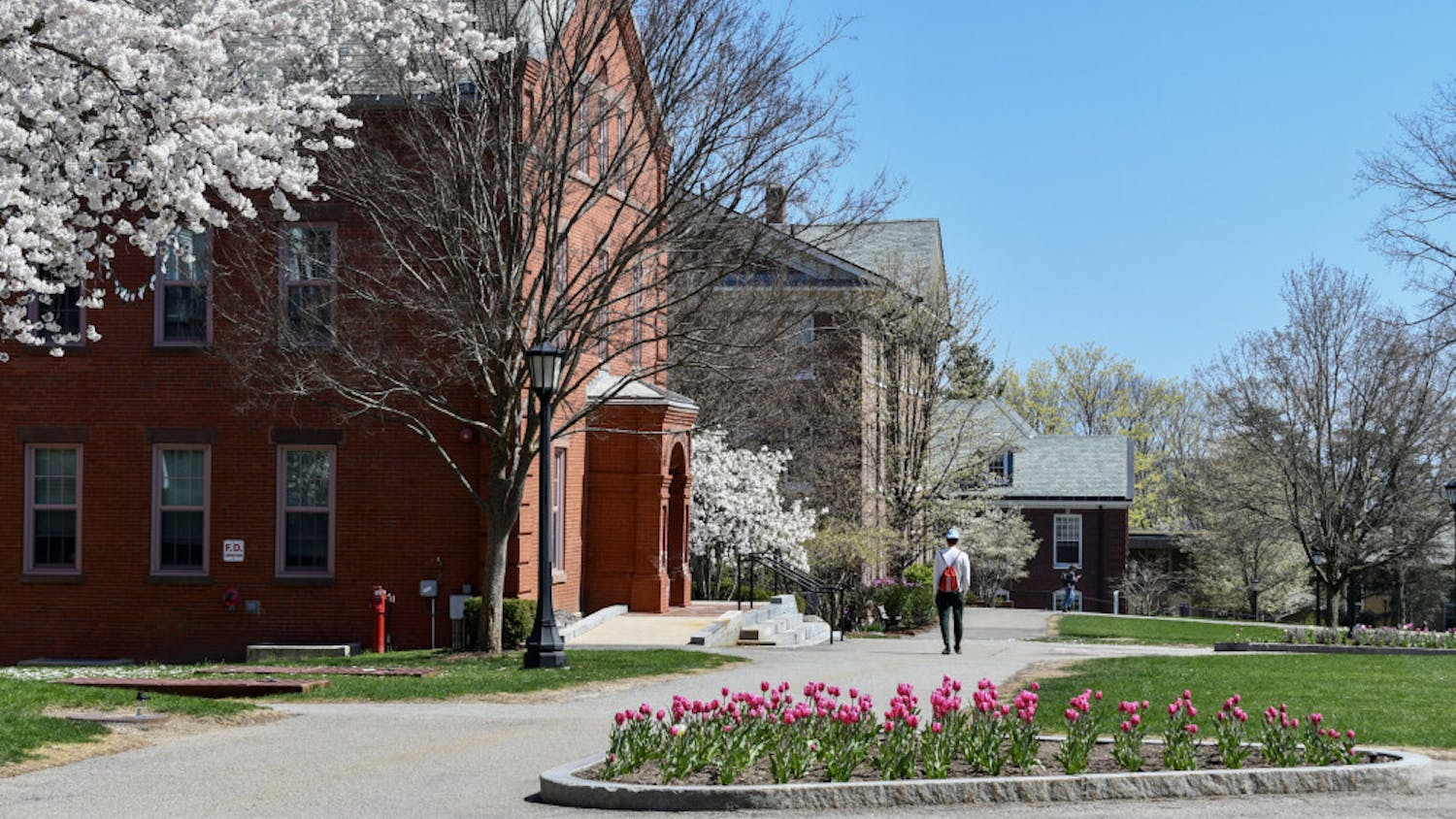Starting in the beginning of November, many residents across Medford received notices that their residence is serviced by lead pipes.
Laura Childs, a Tufts senior who lives in the Hillside area, shared some skepticism about the sudden influx of notices around the area. She said that she has not received a notice but lives next to two houses confirmed to have lead pipes.
“I don’t understand what caused this so suddenly because these houses are so old and you’ve probably known about this for a long time,” she said.
Medford Mayor Breanna Lungo-Koehn provided insight into the recent increase in notices.
“We’ve been trying to change out lead pipes for many years — the EPA put new regulations in, and two of the biggest regulations were to create an index so we know what homes are serviced by what, and the second regulation is these letters that will go out yearly to homeowners or property addresses that are serviced by either lead or if they’re unknown,” she said.
The city will provide up to a $1,000 rebate per household to assist affected residents in replacing pipes on private property. However, Lungo-Koehn shared that the figure will not cover the full estimated cost.
“What I’m hearing is it’s upwards of $5,000 or more to get the private side changed out,” she said.
The city has applied for a grant from the Environmental Protection Agency, asking for $20 million. If the city receives the grant, it must complete certain environmental justice priorities outlined by the agency.
“We’ll have to start with the 11 environmental justice communities that are outlined by the federal government. And then once those are complete, and it will take some time, we can move on to the other 29 neighborhoods that the state has outlined as environmental justice communities,” Lungo-Koehn said. “So if the $20 million stretches through those 40 neighborhoods, it would be about 60 to 70% of our lead lines. But we think it’s going to cost a lot more than $20 million to even get through those 40 neighborhoods.”
The Commonwealth of Massachusetts stipulates that environmental justice communities have specific parameters based on median household income, minority population and knowledge of English.
There were previous reports in early October that lead water was detected in the Andrews and McGlynn Middle Schools. Lungo-Koehn confirmed that the issue of lead pipes in households was not related to the schools. She told the Daily that the lead water found in the schools was a result of “cheap fixtures.”
“Most of those faucets, anyway, nobody was drinking the water. They were in science rooms and art rooms,” Lungo-Koehn said. “We have already ordered new faucets for a certain percentage in each school so that we can do testing to see if it is actually the fixtures.”
According to the EPA, adults exposed to lead can suffer from increased blood pressure and hypertension, decreased kidney function and reproductive problems.
Opinions about the quality of information and suggested best practices on the notices were mixed. Jaiden Mosley, a Tufts senior whose house on Boston Ave is serviced by lead pipes, believed that the city had done well but that there was a gap of information.
“I think they did a thorough job at telling us how to protect ourselves. Some questions I did have to look up because I was concerned about the shower water and just brushing my teeth. But all of that is fine too,” he said.

A letter from the City of Medford notifies a Medford resident of lead pipes in their residence.
Millie Girardi, a Tufts senior who lives in a house on Boston Ave. serviced by lead pipes, thought the notice was vague.
“It didn’t say where the pipes were located, [or] if it’s your direct private property,” she said.
Mosley was optimistic about the city’s focus on keeping residents safe, but shared some disappointment with the timing of the notice.
“I still have a little skepticism, because they could have let us know way earlier, and they could have done some sort of testing way earlier for the water, [but] I think they actually care, and they’re trying,” he said.
Regardless, residents are taking active steps to keep themselves safe. Mosley shared his household’s mitigation efforts and the steps they’ve taken to replace the pipes.
“We’ve been drinking bottled water. The city did say, if you run the water and it’s cold and then you run it through a filter, that it would be safe enough to drink. So we’ve been doing that as well, but for the main part, I’ve been just drinking bottled water. My landlord is going to come and put in new pipes in early December,” he said.
Girardi was not concerned about immediately replacing the pipes.
“As far as my housemates are concerned, we’re living here temporarily so we don’t have any plans to upgrade,” Girardi said. “And we’re renting our house, so it wouldn’t make sense for us to do anything like that, but our landlord did. He said that he did update the pipes a couple years ago.”
Childs shared what she has heard from fellow students living in the area.
“Some people decided to proceed with testing, and eventually try to get pipes replaced. But that’s obviously not going to happen immediately,” she said. “Others have just said, ‘Okay, guess we’ll get a Brita filter and rough it out that way.’ But not all filters are effective at removing lead. There’s caveats to when they’re effective. [And] it’s a cost to the tenants rather than the city.”
Lungo-Koehn stressed the importance of residents replacing lead pipes without being scared about their health.
“We want people to take this seriously, but we don’t want anybody to be frightened. And there’s different steps you can take if you know you have a lead line or you got a letter and you’re concerned.”






